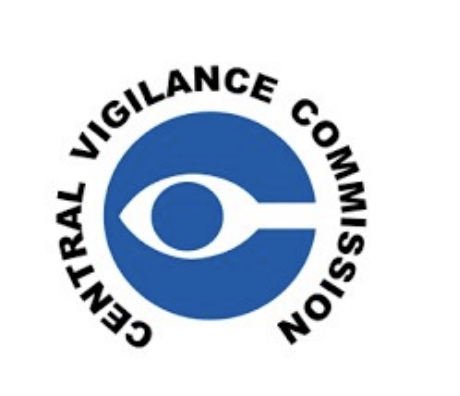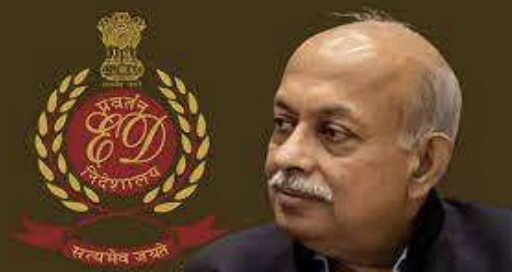
Political Vigilance
What is CVC?
Central vigilance commission is an anti corruption organisation formed to look into & check the work
of the executionary wing of the central government i.e., it examines the governments civil work. The
CVC Act,2003 makes this commission a statutory organisation, it also helps the government plan,
execute and review their work and do better work along with helping them and seeing to it that there is
no rampant corruption going on.

The CVC Act 2003, the Lokpal and Lokayukta Act 2013, and the Whistle-blower’s Protection Act 2014
together with the CBI as the investigation wing give the CVC its powers.
What is the CVC Amendment bill, 2021?
The CVC amendment bill 2021 allows for the extension of the tenure of the Director of Enforcement,
the Director of Enforcement is normally chosen by the CVC chairperson along with other required
members.
Normally the tenure for the Director of Enforcement is for 2 years, this Act provides that the tenure may
be extended for 1 year at a time till the completion of 5 years. This tenure extension should only be
done by recommendation or for the interest of the Public.
Why is there a petition against it.
The Director of Enforcement Directorate was again given an extension of tenure, this year; this would
be the 3rd and final time the director would be getting an extension of tenure.

Sanjay Kumar Mishra was appointed the Director of ED in 2018 for a tenure of 2 years, an Amendment
act in 2021 was enacted which allowed for the extension of tenure of ED directors for up to a year at a
time and a maximum of 3 extensions, but as said by the Act this extension should only be done in cases
of public interest and rare and exceptional cases, especially for those members who have attained the
age of retirement. Sanjay Kumar Mishra is Currently 62.

What is the case?
A 3-Judge bench of Justices B K Gavai, Vikram Nath, and Sanjay Karol heard the matter on a PIL
challenging the 3rd extension of term mentioned above and also at the same time challenged the CVC
Amendment Act 2014.
There was a previous case registered for the same reason ‘Common Cause v. Union of India’, In which
Justices Gavai, and L Nageshwara Rao said that extension of tenure can only be granted in rare and
exceptional cases and only for a short period of time and they had also strictly held that E D Director
Sanjay Kumar Mishra should not get another extension of tenure.
Some of the Petitioners were Congress Leaders Jaya Thakur, Randeep Singh Surjewala, Mohua Moitra,
and Saket Gokhale. K V Vishwanath told the Court that these tenure Extensions along with the CVC
Amendment Act, 2021 was illegal, and that in the it could be misused by future governments.
As the court had previously stated that an extension of tenure can happen only on rare and exceptional
cases Mr. Vishwanathan said that the Amendment did not confirm to the court’s rules and instead a
undefined concept of ‘public interest’ has been used in the Amendment. He also said that this may lead
to “stagnation and inefficiency of service/administration and cause frustration amongst other eligible
officers in the cadre”.
Solicitor General Tushar Mehta stated the 1st objection of the centre i.e., the PIL was filed by members
of opposition parties. The judges objected to even Mr. Mehta completing his sentence, they stated that
the court is not a political platform that & they are not concerned with who belongs to which political
party.

When the court questioned that anyone can file a PIL and that being members of a political party would
not disqualify the Petitioners from filing a PIL, to which Mr. Mehta replied that the government has
reason for the extension given, and that this increase in tenure would not be taking away anyone’s
chances of attaining the post, as this post is a appointed and chosen post and not a promotional post.
He says “This court’s parameter of judicial review would be different in a case where someone next in
line approaches this court with the complaint that the continuance of the director would harm their
chances, as against a case where petitions have been filed by members of political parties, whose
colleagues are under serious investigation.”
And that various cases were at a crucial point for them to
be properly disposed of and due to that continuity was important.
Mr. Mehta also stated that India is the 4th rounds of mutual Peer Review by FATF, a peer review that is
being done after a decade, this review which will decide whether India can get grants or loans from
international Organisations such as the World Bank, Asian Development Bank etc. he said that Mr.
Mishra’s tenure would completer when the most crucial part of the assessment is completed, the Supreme Court has currently reserved Judgment and asked for all parties to file written arguments
by next Friday.







